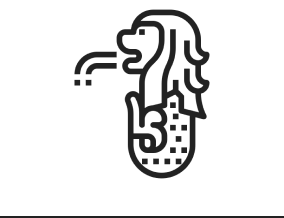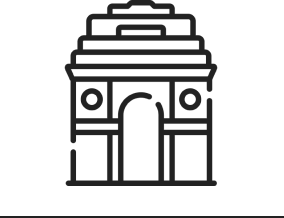Hotel budgeting is an essential process that ensures a hotel’s financial stability and growth. It involves estimating revenues, setting costs, and allocating resources for various departments within a hotel. A well-planned and executed budget can help hotels maximize profits, minimize expenses, and achieve their strategic goals. This blog post will explore why budgeting is crucial, discuss different types of budgets used in the hospitality industry, and outline the steps involved in the hotel budgeting process.
Importance of Hotel Budgeting
Financial Planning and Control: Creating a budget helps hotels plan & control finances by forecasting revenue streams & determining expenditure requirements.
Resource Allocation: Budgets allocate funds efficiently across various departments based on their needs and priorities.
Performance Measurement: Hotels can measure performance and identify areas for improvement by comparing actual results against projected figures.
Risk Management: Developing contingency plans as part of the budgeting process prepares hotels for unexpected events or market changes.
Strategic Decision Making: Accurate budgeting provides insights into potential investments, renovations, or expansions, helping management make informed decisions.
Types of Budgeting in Hotel
Consolidated Budget
The consolidated budget combines all departmental budgets into one comprehensive document outlining expected income and expenses over a specified period (usually annually). It serves as a high-level overview of the entire organization’s financial health, enabling senior executives to evaluate overall profitability and set long-term strategies.
Department Budget
Each department within a hotel develops its own budget detailing specific revenue targets, operational costs, capital expenditures, and staffing requirements. Examples include housekeeping, food & beverage, front office, maintenance, sales & marketing, human resources, and accounting. These individual budgets feed into the consolidated budget.
Operational Budget
An operational budget focuses solely on recurring expenses related to running day-to-day operations such as salaries, utilities, supplies, repairs, and maintenance. Its primary purpose is to ensure smooth operation while controlling variable costs and maintaining optimal service levels.
Cash-Flow Budget
This budget projects cash inflows (revenues) and outflows (expenses) during a defined time frame. Hotels rely on cash flow projections to manage liquidity, meet short-term obligations like loan payments, and prepare for unforeseen circumstances. Regularly monitoring cash flow also prevents overspending and maintains fiscal discipline.
Capital Budget
Capital budgets involve significant long-term investments in fixed assets such as property acquisitions, construction projects, furniture, fixtures, equipment, or technology upgrades. They require extensive research, feasibility studies, and return-on-investment analyses before approval since they impact future profitability significantly.
Marketing Budget
A marketing budget supports promotional activities aimed at attracting new customers, retaining existing ones, and increasing brand awareness. Expenses may cover advertising campaigns, public relations initiatives, digital marketing efforts, social media management, email marketing, content creation, partnerships, loyalty programs, and special events. Metrics should track ROI from these endeavors to justify continued investment.
Steps Involved in the Hotel Budgeting Process
While each budget has unique components, certain general principles apply when developing them. You must understand that models of hotel forecasting
Historical Data Analysis: Review past financial records to understand trends, patterns, successes, and failures.
Establish Realistic Goals: Set achievable objectives considering current market conditions, competition, customer preferences, and organizational capabilities.
Identify Key Drivers: Determine factors influencing revenues and costs (e.g., seasonality, occupancy rates, average daily rate, labor productivity, etc.) and incorporate them into your projections.
Consult with Stakeholders: Engage relevant personnel from each department to gather input, validate assumptions, and foster buy-in.
Prepare Pro Forma Financials: Create detailed income statements, balance sheets, and cash flow statements reflecting estimated revenues, expenses, and asset balances.
Monitor Progress: Continuously compare actual results against budgeted figures to identify deviations, adjust course if necessary, and implement corrective actions promptly.
Communicate Findings: Share key insights, challenges, and achievements regularly with stakeholders to maintain transparency, alignment, and motivation.
Adaptation and Flexibility: Be prepared to revise budgets throughout the year due to changing business environments, emerging opportunities, or unanticipated issues.
Document Lessons Learned: Capture valuable lessons gained during the budgeting process to inform future planning cycles and improve overall financial management practices.
Conclusion
Effective hotel budgeting requires careful consideration of various factors, including historical data analysis, realistic goal-setting, identification of key drivers, stakeholder consultation, and more. By mastering this critical skill set, hoteliers position themselves for sustainable growth, enhanced competitiveness, and increased profitability.
Need a smart hotel planning solution for your business? REPLAN is here to help!






